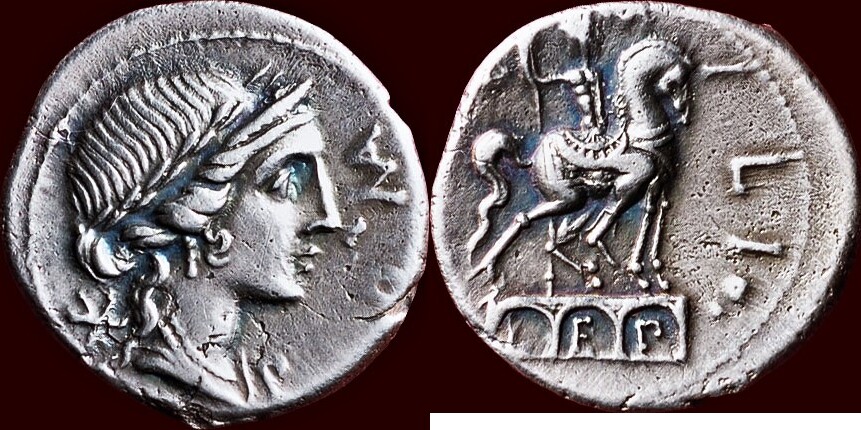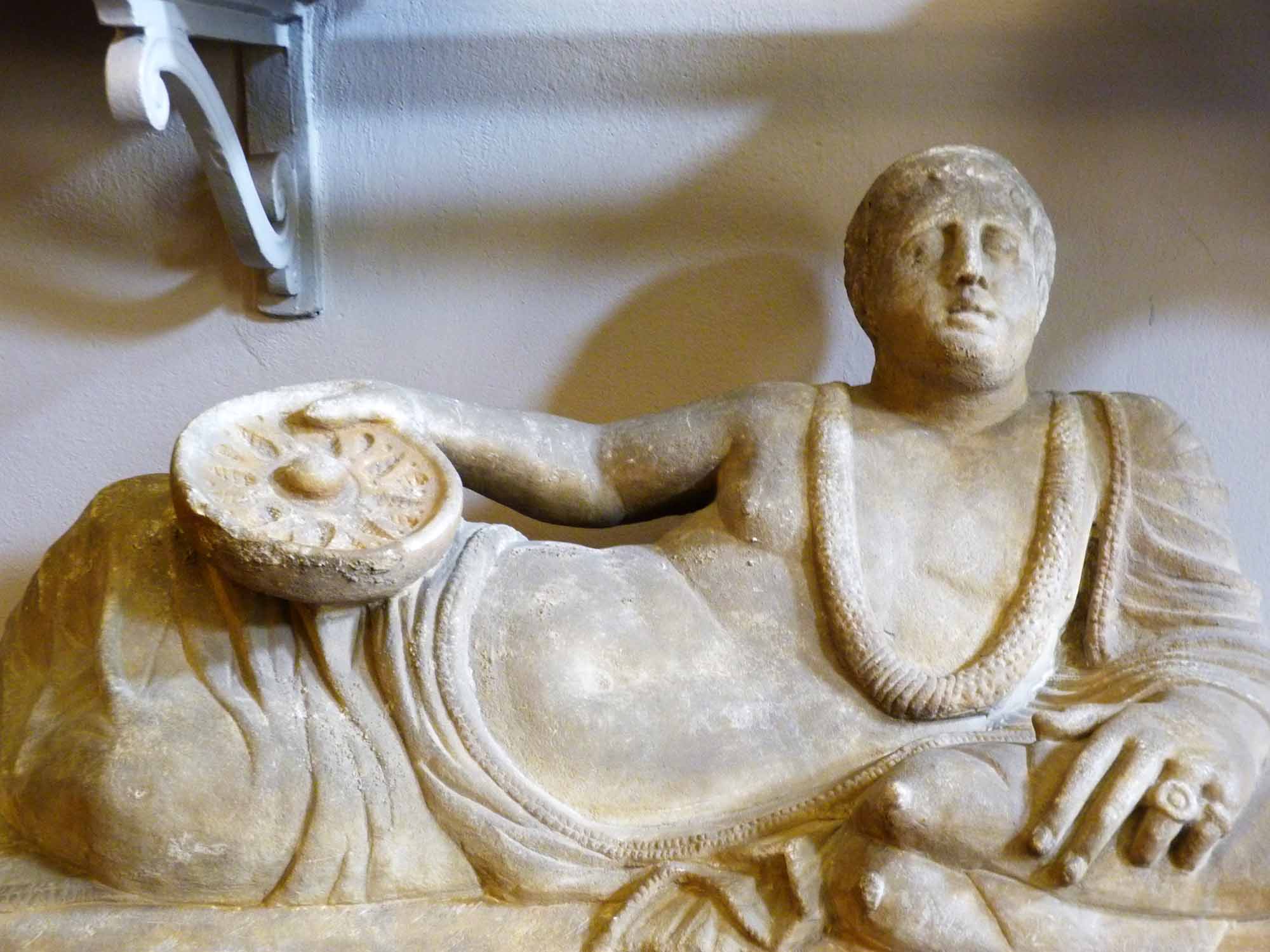Aemilius Lepidus: An Intriguing Figure of the Late Roman Republic
The Roman Republic, a complex tapestry of politics, military conquests, and social upheaval, was home to numerous figures whose names have echoed through history. Among these, Aemilius Lepidus occupies a peculiar space—not as illustrious as a Julius Caesar or Cicero but nonetheless a pivotal player in Rome's waning days of republicanism. His life, interwoven with ambition, political upheaval, and a quest for relevance, reflects the dynamics of a transformative era in Rome's history.
The Early Life and Political Genesis of Aemilius Lepidus
Born into the elite plebeian gens Aemilia in Rome around 89 BC, Marcus Aemilius Lepidus had access to advantages befitting his noble lineage. The Lepidi were an ancient family known for holding significant offices in the Roman Republic, tracing their influence back multiple generations. Against this backdrop, young Lepidus was expected to follow a trajectory that included classic Roman virtues of duty, courage, and, above all, service to the Republic.
His early political career was characterized by roles typical of Roman nobility aiming for the cursus honorum, the sequential order of public offices held by aspiring politicians. He was diligently involved in military campaigns, an obligatory passage for Roman statesmen, serving under Julius Caesar during the Gallic Wars. This association would become a double-edged sword, providing opportunities but also binding his fate to the complex political machinations that characterized Caesar’s rise and eventual downfall.
Lepidus and the Tumult of Caesar’s Ascension
As Caesar gained unrivalled influence through his military successes, Lepidus benefited from the connection, which allowed him to ascend the political ranks. His loyalty was rewarded with the powerful position of Magister Equitum, or Master of the Horse, essentially placing him as second-in-command to Caesar during his dictatorship. The stability of this office, however, proved ephemeral following the Ides of March in 44 BC, when Caesar was assassinated. This pivotal moment in Roman history catapulted Lepidus into a vortex of chaos and opportunity.
Following Caesar's assassination, Rome was plunged into political unrest. Despite attempts by some parties to restore the Republic's structures, the inertia for change was overwhelming. Lepidus, opportunistically aligning himself with both Mark Antony and Octavian (the future Augustus), partook in the formation of the Second Triumvirate. Established in 43 BC, this alliance wielded unprecedented control over Roman state affairs, effectively sidelining the senatorial authority—an indication of Rome’s transition from Republic to autocracy.
The Second Triumvirate: A Balancing Act
Initially, the Triumvirate of Lepidus, Mark Antony, and Octavian appeared a formidable union. They collectively pursued vengeance for Caesar’s assassination, targeting the conspirators who had sought to dismantle the burgeoning autocratic structure. Yet this alliance was marked more by necessity than genuine camaraderie. The individuals' disparate ambitions and differing visions for Rome's future soon surfaced, leading to internal strife.
Lepidus, although ostensibly one of the three most powerful men in Rome, struggled for dominance. Compared to Antony's charisma and Octavian’s political astuteness, Lepidus often appeared ineffectual, lacking the necessary prowess to assert his authority within the Triumvirate. This perception was further aggravated by the divisive distribution of power among them, with Lepidus receiving the least significant territorial control, governing parts of Hispania and Narbonese Gaul.
His weaknesses became increasingly apparent as Octavian and Antony more decisively consolidated power. Tensions came to a head following the defeat of Brutus and Cassius at the Battle of Philippi in 42 BC, where Lepidus’ role was marginal. Although he remained within the leadership circle, his influence dwindled significantly, marking the beginning of his political eclipse.
The Downfall and Legacy of Lepidus
Lepidus's tenure in the Second Triumvirate was marked by an inevitable decline. His marginalization culminated in 36 BC when, amid strained relations within the Triumvirate, he attempted to assert independence by seizing Sicily. This move, designed to elevate his standing, backfired spectacularly. Encountering resistance from Octavian, Lepidus found his forces overstretched and faced a mutiny amongst his weary troops, who switched allegiance to the more promising Octavian.
Defeated and politically impotent, Lepidus was stripped of his Triumviral power, effectively ending his public career. He was forced into a nominal exile on his estate, escaping harsher retribution likely due to the respect afforded by his noble lineage. The balance of power shifted decisively towards Octavian, who maneuvered Rome towards the Augustan Principate as Lepidus receded into historical obscurity.
While often considered a minor figure in the grand narrative of Roman history, Aemilius Lepidus offers insights into the volatile nature of power and politics during Rome’s transition from a republic to an imperial entity. As we delve deeper into his story, his legacy challenges us to reflect on the nuances of political ambition, the harsh realities of power struggles, and the relentless march of historical change.
Lepidus and the Political Dynamics of the Triumvirate
The formation of the Second Triumvirate was a revolutionary development in Roman politics, granting its members supreme authority to legislate, command armies, and appoint magistrates. However, beneath its surface stability lay a fragile coalition prone to internal conflicts and shifting allegiances. For Aemilius Lepidus, navigating this tenuous arrangement proved challenging as he struggled to carve out a significant role alongside Mark Antony and Octavian.
Lepidus’s position in this political arrangement was precarious from the outset. While he ostensibly held power as one of Rome's three ruling Triumvirs, his lack of military prowess and political maneuvering made him susceptible to being overshadowed. Antony’s flamboyant political style and Octavian's burgeoning cunning quickly placed Lepidus at a disadvantage, relegating him to the role of peacekeeper within the often contentious trio.
His limited direct involvement in key military engagements further undermined his influence. For instance, during the pivotal engagements at Philippi, which decisively ended the campaigns of Caesar's assassins, Lepidus was left to manage affairs in Rome, a role lacking the glory associated with battlefield victories. Although this allowed him to maintain some semblance of political control in Italy, it ultimately denied him a share of the credit and acclaim that Antony and Octavian enjoyed following their triumphs.
Lepidus's Administrative Challenges
Tasked with governing Narbonese Gaul and Hispania, Lepidus faced considerable administrative challenges. These territories were not only distant from the power epicenter in Rome but also rife with local issues requiring effective leadership. His ability to administer these regions proved limited, largely due to the lack of support and resources from his partners in the Triumvirate. This neglect only further emphasized Lepidus’ diminishing political clout.
Moreover, the underlying tensions between the Triumvirs exacerbated the difficulties of governance. With each member of the Triumvirate harboring aspirations for greater control, shared responsibilities frequently devolved into blame and mistrust. For Lepidus, this meant balancing his territorial duties with Rome's broader political struggles, a task rendered all the more difficult by the constant need to defend his limited power against encroachments by his more ambitious colleagues.
The redistribution of land as settlements for military veterans further complicated his administration. Soldiers loyal to Octavian or Antony often received preferential treatment, sidelining those who might have supported Lepidus, thereby isolating him politically and militarily. As veteran claims frequently resulted in land confiscations, Lepidus's inability to efficiently manage these allocations fueled unrest and dissatisfaction within his governed territories.
The Sicilian Misadventure
The turning point in Lepidus’s political fortunes came with his ill-fated venture to secure Sicily. Following years of waning influence, Lepidus resolved to bolster his position by bolstering a military campaign to reclaim the island from Sextus Pompey, who had held the territory as a pirate stronghold. Leveraging this potential victory was vital for Lepidus in demonstrating military competence and achieving parity with his Triumviral peers.
At first, the strategy appeared sound. By collaborating with Octavian, who also had aspirations of reclaiming Sicily, Lepidus sought to reinforce his relevance within the Triumvirate by sharing in the martial triumph. However, the classes between Octavian's strategic aims and Lepidus' desperation for recognition foreshadowed the doomed undertaking.
When Sicily came under Triumvirate control, Lepidus overextended his authority and attempted to proclaim himself as the island’s chief commander, an overreach that Octavian immediately countered. The subsequent discord among Lepidus’s troops, already weary from excessive campaigning and favoritism given to Octavian’s armies, resulted in defections that left Lepidus isolated. Confronted by Octavian's superior force, Lepidus’s ambitions crumbled, and he was forced into a vulnerable position, pleading mercy to avoid further humiliation.
The Final Years of Aemilius Lepidus
Stripped of his power and Triumviral ranking, Lepidus was exiled to his ancestral estate. Despite his fall from grace, the Roman political ethos of clemency, coupled with strategic considerations by Octavian, spared him a more ignominious fate. He retained the nominal title of Pontifex Maximus, Rome’s chief priest, allowing him to maintain a measure of dignified retirement amidst the broader political landscape reshaping around him.
Lepidus's legacy, often overshadowed by his more audacious contemporaries, serves as a poignant reflection on the precarious nature of power during Rome’s transition from Republic to Empire. His story highlights the intricate dynamics of Roman politics and the fleeting nature of alliances driven more by convenience than mutual trust. Despite his relative obscurity, the lessons of Lepidus's life endure as a testament to the complexities of leadership and ambition that defined the tumultuous twilight of the Roman Republic.
Reevaluating Lepidus: A More Nuanced Perspective
In the grand narrative of the Roman Republic's transformation into the Roman Empire, figures like Julius Caesar, Mark Antony, and Octavian naturally command more attention due to their roles in pivotal events that shaped Roman history. Yet Aemilius Lepidus, often dismissed as ineffectual or simply overshadowed by his contemporaries, warrants a closer examination that reveals a more nuanced understanding of his contributions and challenges.
Lepidus’s political and military endeavors illustrate the difficulties faced by any player in the complex Roman political arena without a singular, defining moment of triumph. However, his active participation in crucial events like Caesar's rise and the establishment of the Second Triumvirate reflects a deeper layer of involvement in Rome’s political metamorphosis than typically acknowledged. Understanding Lepidus means recognizing the era's intricacies and the subtle forces that quietly propelled significant historical changes.
The Challenges of Balance Between Alliances and Independence
A critical aspect of Lepidus’s career was navigating the treacherous waters of political alliances and the pursuit of autonomous influence. After Caesar's assassination, the necessity to align with more dominant figures like Antony and Octavian was a strategic move aimed at preserving influence in a fractured Rome. Yet, Lepidus’s downfall primarily stemmed from his inability to extricate himself from the precarious dependency these alliances necessitated.
Caught between Antony’s resilience and Octavian’s calculated politicking, Lepidus faced insurmountable challenges in asserting his independence. His endeavors in Sicily underscored this struggle; the bid to independently control the region can be seen as an attempt to break free from the Triumvirate’s dynamics. However, lacking the requisite military backing and a solidified power base, Lepidus’s attempts were predictably detrimental, reflecting the limitations faced by a politician unable to negotiate his way to a more independent power structure.
The Impact on the Roman Republic's Political Evolution
Despite his less distinguished reputation, Lepidus played a significant role in the overarching narrative of Rome’s evolution from Republic to Empire. His experience serves as a vital case study in understanding the erosion of traditional republican structures. During the Second Triumvirate, Lepidus and his peers directly challenged the Senate’s authority, effectively dismantling the earlier republican model which relied heavily on checks and balances.
While the fall of the Roman Republic involved contributions from more formidable figures, Lepidus's involvement in promoting centralized power and autocratic governance within the Triumvirate contributed substantially to this shift. The Triumvirate system itself, a response to both military and political exigencies, represented a fundamental departure from Rome's earlier republican ideals, emphasizing a consolidation of power that presaged Augustan reforms and the Empire's birth.
Lepidus's Enduring Legacy
Aemilius Lepidus’s historical footprint, while more muted than his contemporaries, provides meaningful insights into the transitional period marking Rome’s transition from Republic to Principate. His career serves as a reminder that the narrative of history is shaped not only by its most celebrated victors but also by those whose failures underscore the complexities of leadership during tumultuous times.
Interestingly, though functionally sidelined from active political life after the Sicilian fiasco, retaining the office of Pontifex Maximus bestowed upon Lepidus a ceremonial role that preserved his societal dignity—a subtle reflection of how Roman customs respected past service, even as the wheels of political change turned. His tenure in this religious office persisted until his death in 12 BC, representing an era's end while embodying the continuance of Rome’s deeply entrenched traditions amidst change.
Today, the saga of Aemilius Lepidus invites historians and scholars to delve into the less highlighted realms of political maneuvering and ambition in ancient Rome. His life narrative, clad in the understated drama of continued relevance within a shifting political arena, enriches our understanding of the forces at play in Rome’s dusk as a Republic—a testament to how even less celebrated actors significantly influence the path of history. By reevaluating Lepidus’s story, we gain a broader appreciation of the diverse forces, personalities, and decisions that together wove the intricate tapestry of Rome’s historic transformations.








Comments